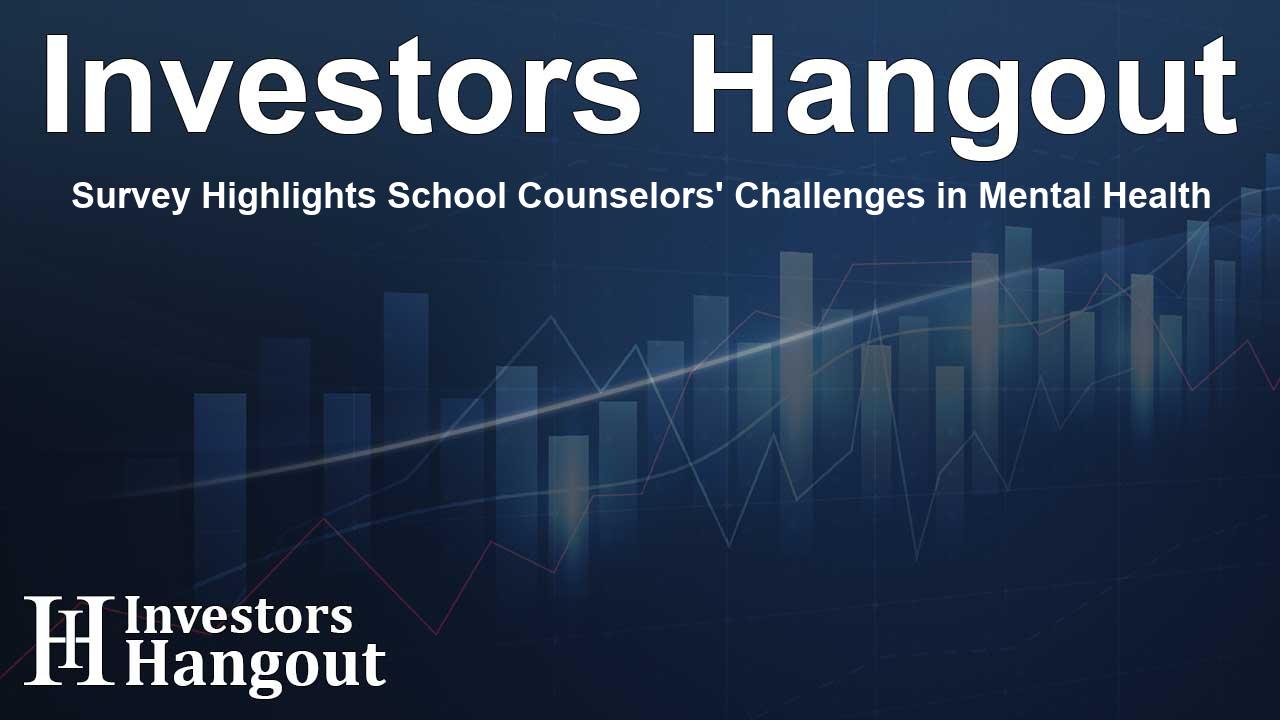Survey Highlights School Counselors' Challenges in Mental Health

Critical Insights from the K-12 School Counselor Survey
Recent findings from a comprehensive survey of K-12 school counselors have unveiled significant gaps in the ability to effectively address youth mental health issues within schools. Conducted by a collaboration of reputable research teams, the survey gathered responses from over 500 counselors across the United States. The results underscore the urgent necessity for proactive measures to support students before their mental health challenges escalate.
The Need for Early Intervention
A striking 94% of counselors indicated that proactive strategies are crucial for addressing mental health problems prior to students reaching critical levels of distress. This strong consensus indicates a broader recognition that early, targeted interventions could make a substantial difference in the lives of many young individuals. Additionally, 96% of the participants expressed concern that many students are currently being funneled into higher tiers of intervention, which often delay necessary support.
The Impact of Mental Health on Counselors
Moreover, 90% of the counselors reported that their students' mental health struggles greatly affect their own well-being, with many experiencing increased stress and burnout from their roles. Notably, 64% felt more pressure in their ability to assist students this school year compared to the previous one. This highlights a concerning cycle where the well-being of counselors is intertwined with that of their students, emphasizing the need for systematic change in how schools allocate resources for mental health support.
Understanding the Youth Mental Health Crisis
The mental health landscape for today’s youth is described as critical, with endorsements from leading figures in public health. Experts have documented alarmingly high rates of anxiety and depression among students. The data reflects a worrying trend where nearly one in three teenage girls considered suicide within a recent year, marking a drastic rise over the last decade. These statistics position the current youth mental health situation as a significant national concern.
Key Tools and Resources Needed
The findings further clarify the tools that counselors believe are essential for effective support. More than half (56%) highlighted the need for better identification tools for at-risk students, while 63% emphasized the importance of targeted interventions for those struggling with Tier 2 needs. The counselors showed a clear demand for reliable methods to assess the impact of these interventions, demonstrating a preference for data-driven approaches that lead to meaningful outcomes.
EmpowerU: A Proposed Solution
One highlighted initiative aimed at bridging the disparity between different tiers of intervention is the EmpowerU program. This solution prioritizes proactive, scalable approaches to managing mental health challenges in schools. Designed specifically for young learners, EmpowerU focuses on providing support before crises develop. By streamlining resources, counselors can more effectively reach those in need, ultimately transforming the academic and social environments for students.
The Future of Youth Mental Health Support
Looking ahead, it's imperative that schools arm themselves with effective strategies and tools to implement Tier 2 interventions successfully. This includes accentuating skills-based training and stress management programs that empower students before they reach critical points of mental health crises. The insights from this survey reaffirm the importance of providing comprehensive support systems within educational institutions to foster a healthier, more resilient student body.
Frequently Asked Questions
What was the main focus of the survey conducted on school counselors?
The survey aimed to identify the challenges school counselors face in addressing youth mental health issues and the importance of early intervention strategies.
How many counselors participated in the survey?
Over 500 counselors from various K-12 educational settings participated in the survey.
What percentage of counselors believe early interventions are necessary?
94% of counselors indicated that proactive strategies are essential for addressing mental health before students reach critical levels.
What are Tier 2 interventions?
Tier 2 interventions are targeted support strategies designed for students who require more assistance than what is provided at the general level but do not need intensive Tier 3 interventions.
How does the EmpowerU program contribute to mental health support?
EmpowerU offers scalable, proactive solutions that help prevent mental health crises in students by providing essential support tools to counselors, enabling them to address issues sooner.
About The Author
Contact Riley Hayes privately here. Or send an email with ATTN: Riley Hayes as the subject to contact@investorshangout.com.
About Investors Hangout
Investors Hangout is a leading online stock forum for financial discussion and learning, offering a wide range of free tools and resources. It draws in traders of all levels, who exchange market knowledge, investigate trading tactics, and keep an eye on industry developments in real time. Featuring financial articles, stock message boards, quotes, charts, company profiles, and live news updates. Through cooperative learning and a wealth of informational resources, it helps users from novices creating their first portfolios to experts honing their techniques. Join Investors Hangout today: https://investorshangout.com/
The content of this article is based on factual, publicly available information and does not represent legal, financial, or investment advice. Investors Hangout does not offer financial advice, and the author is not a licensed financial advisor. Consult a qualified advisor before making any financial or investment decisions based on this article. This article should not be considered advice to purchase, sell, or hold any securities or other investments. If any of the material provided here is inaccurate, please contact us for corrections.
